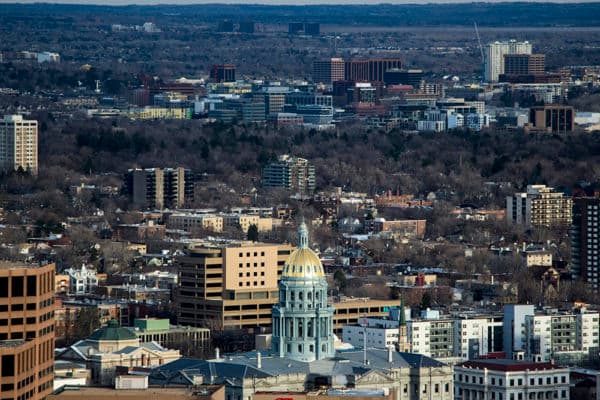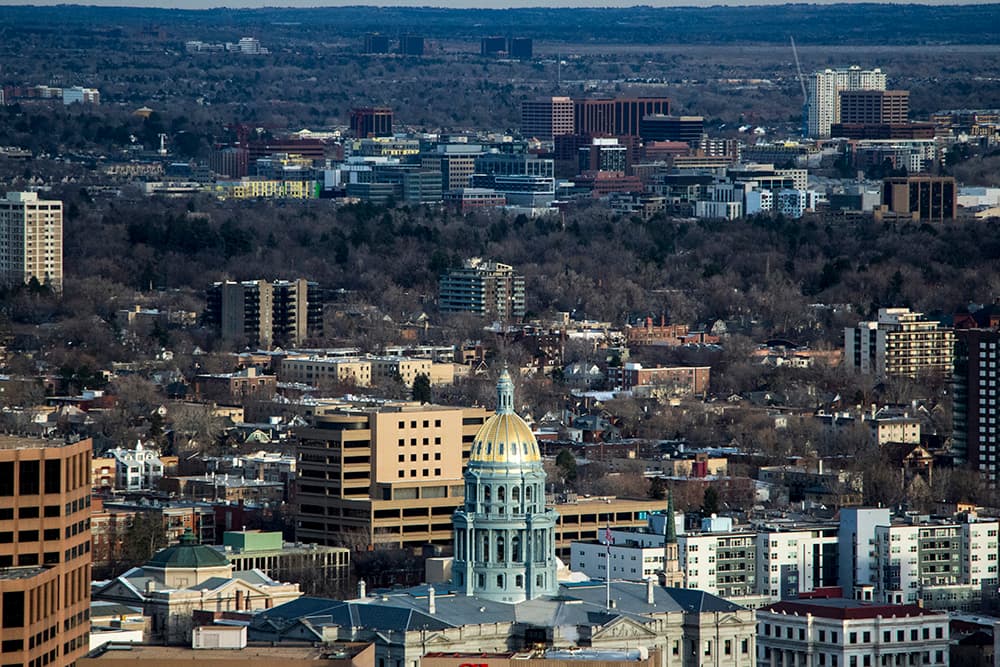
It happens every 10 years in Colorado and 36 other states: State lawmakers must come up with new, redrawn district maps to reflect population changes noted by the U.S. Census.
But, as University of Denver assistant professor Sara Chatfield points out, it hasn’t been a sure bet in the Centennial State.
“Although, technically, the process is supposed to go to the state legislature, that hasn’t actually happened in the past two decades,” Chatfield, who teaches in the political science department at DU, said. When Democrats and Republicans are unable to come to a compromise, the Colorado Supreme Court was tasked with settling their differences.
The two parties have failed to come to an agreement in the state legislature twice, following the 2000 and 2010 U.S. Census.
Avoiding another similar scenario is one of the reasons two groups committed to calling attention to Colorado’s redistricting process are joining forces. Both hope to fight political gerrymandering and to support more competitive elections in the state.
Fair Districts Colorado and People Not Politicians are withdrawing separate, previously filed ballot initiatives and will be moving forward with a joint proposal addressing Colorado’s redistricting and reappointment process, according to a release issued Tuesday. The plan has support from both Republicans and Democrats, including support from former state legislators.
According to the release, the state’s current redistricting and reapportionment rules are controlled by state officials and political appointees. This can be problematic due to partisan tendencies, so the two groups are hoping to create a system that’s more representative of the state’s purple persona.
Chatfield said the next redistricting cycle could benefit whoever controls the state legislature (it’s currently split, with Dems controlling the House and Republicans controlling the Senate). The winning party could end up pushing for redistricting that benefits them the most.
That could lead to more gerrymandering, a term Chatfield said generally means drawing a district to try to achieve political gain for one party as opposed to drawing an unbiased or neutral district.
The proposed redistricting process would be similar to one in four other states.
The proposal from the two groups would call for the establishment of an independent commission to oversee the redistricting mapping. It would include representation from both major parties and unaffiliated voters. It would consist of a more clear-cut map drawing criteria, which the release said would prohibit gerrymandering and help avoid potential legal battles.
The proposed system would also be much more transparent, including public participating and ensuring the commission’s meetings are open to the public and subjects them to sunshine laws.
Chatfield said four states have independent commissions like the one under proposal; they're all out West and include California, Arizona, Idaho and Washington. Two other states have political commissions, while seven states are lucky and miss this kind of legislative drama altogether because they only have one congressional district (it’s the entire state; shoutout Montana).
The release from the two groups said that the current system in Colorado, “protects incumbents, and created one competitive congressional district and fewer than 10 competitive seats” in a state that’s pretty evenly divided between Democrats, Republicans and unaffiliated voters.
DaVita CEO Kent Thiry helped lead several community leaders to come together and “craft a principled compromise to present to the voters of Colorado,” according to the release.
Former Republican House Speaker Frank McNulty supported the Fair Districts measure. He called the agreement historic and said it could spare the state from a “dismal partisan train wreck” that happened during the last two redistricting phases in Colorado.
“Gerrymandering will very literally be illegal," McNulty said in the release, "and many more seats at the state and federal level will actually be subject to true electoral competition.”
People Not Politicians member and former state Sen. Jessie Ulibarri, a Democrat, said the measures were carefully negotiated to benefit Coloradans “of all backgrounds” to have representation. Ulibarri currently serves as Interim Co-Executive Director of Wellstone.
“I'm proud of the leadership of voting and civil rights organizations who fought to protect the hard-earned voting rights of communities of color in this process,” Ulibarri said in the release.
Redistricting could increase competition among Congressional seats.
Even if Colorado doesn't gain a new Congressional seat after 2020, the district lines will have to be redrawn in 2021. But the possibility of a new seat means added competition.
Wadhams said it would be hard to make all the state’s districts, including the hypothetical 8th, wherever it might be drawn, competitive.
“We really have only one truly, truly competitive seat in Colorado right now and that’s the Sixth,” Wadhams said. “I think there should be more.”
The 6th Congressional District is currently held by U.S. Rep. Mike Coffman, a Republican. The 6th has been represented by Republicans since its inception in 1983 but always seems to face a stiff Democratic challenge. Dems will likely decide between Jason Crow and Levi Tillemann, who are both vying for the party’s nomination.
Historically, there’s been some party-flipping in other districts.
For example, the 3rd Congressional District switched between parties several times. It last switched hands after Democrat John Salazar lost the seat to current U.S. Rep. Scott Tipton, a Republican, in 2010. The 4th Congressional district, currently held by U.S. Rep. Ken Buck, was formerly represented by Democrat Betsy Markey before she lost reelection to now-U.S. Sen. Cory Gardner.













